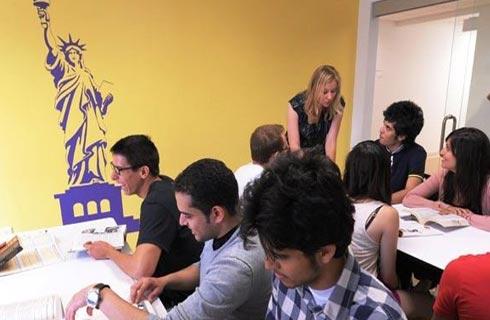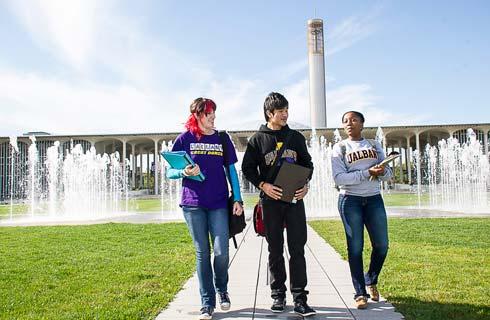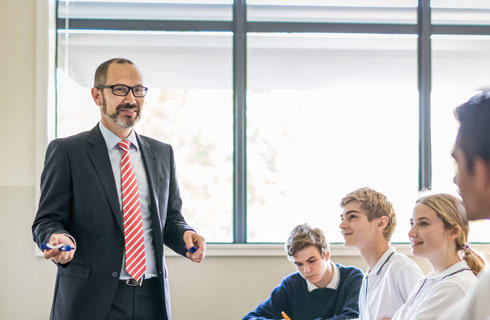中世纪和近现代史文学学士(荣誉)学位
BA (Hons) Medieval and Early Modern History

学历文凭
Bachelor Degree with Honours

专业院系
School of History, Law and Social Sciences

开学时间

课程时长

课程学费

国际学生入学条件
IDP—雅思考试联合主办方

雅思考试总分
6.0
- 雅思总分:6
- 托福网考总分:75
- 托福笔试总分:160
- 其他语言考试:PTE Academic - 56 (51)
CRICOS代码: V130
申请截止日期: 请与IDP联系 以获取详细信息。
课程简介
This course gives you the opportunity to study the pre-modern world, c.500-1750 (especially Europe, Britain and Wales) in detail. You will develop an understanding of the foundations of the contemporary west, whilst developing a range of skills that includes efficient information gathering, critical analysis of evidence and the ability to present your ideas clearly. The degree culminates in the chance to design and write your own research project in the final year.This course aims to develop your knowledge and understanding of a wide range of human history, concentrating on the period before 1750. It encourages you to take an analytical approach to the medieval and early modern eras, so that you can understand and contribute to historical controversies, and can understand ways in which the past is at least partly constructed in the present. It therefore hopes to train you intellectually so you can explain the relevance of the past in the present, understand the problems of interpreting written and other evidence, and gain skills of research, analysis, problem-solving, construction of argument and communication.History is one of the most inspiring, dynamic and relevant subjects that can be studied at degree level, and so it is no surprise that History remains one of the most popular degree subjects in the UK. It has an established range of concerns, but it is always expanding and changing as it responds to new themes or ideas raised by other disciplines. It is also a very practical subject, and during your degree you will develop various transferable skills that employers value highly. Surveys consistently indicate that History graduates obtain employment more rapidly than graduates in many apparently more 'vocational' subjects.Placement Year and International Experience Year AvailableCareersHistory is a very versatile degree. This course provides specialist knowledge and a range of analytical and presentational skills which will enable you to tackle a variety of career options centring on administrative and leadership needs, for example, in company personnel departments, the civil service and local government as well as in a range of directly transferable vocations. Our History graduates enter a wide range of employment: especially fields which require skills of communication, analysing large quantities of information, and understanding human nature. Graduates have in recent years gained careers in museum work, law, teaching and the cultural industries. Many graduates also progress to higher education postgraduate schemes.
相关申请
 预科
预科 奖学金
奖学金 实习机会
实习机会 在校学习
在校学习 跨境学习
跨境学习 校园授课-线上开始
校园授课-线上开始 在线/远程学习
在线/远程学习
开学时间&学费
学费信息仅供参考,请与IDP联系以获取详细信息
| 开学时间 | 时长 | 学费 | 地点 |
|---|
学校排名

世界排名401
数据源:
泰晤士高等教育世界大学排名
关于班戈大学

班戈大学自 1884 年建校以来,一直致力于提供世界一流的教学和研究。班戈大学位于北威尔士,地理位置优越,适合希望体验充满活力的生活方式和令人兴奋的户外活动的学生。班戈大学有多种学科课程可供选择。该大学是北威尔士医学院的所在地,新设施有助于培训学生从事医疗行业的各种工作。该校还提供海洋科学等专业科学课程,并拥有自己的研究船--马多格王子号。班戈大学的学生在第一年(9 月入学)可享受住宿保障,并可选择加入 150 多个俱乐部和社团中,结识志趣相投的人,建立牢固的社会纽带,在学习之余享受乐趣。班戈大学卓越的课程设施和热情洋溢的教师团队有助于确保所有学生都能享受到量身定制的丰富学习课程。学生将受益于专业级的资源和学习空间,以及真正关心帮助培养下一代行业领袖的教学人员。斯诺多尼亚国家公园距离班戈大学近在咫尺,可以欣赏到壮丽的景色,可以散步,还可以尝试各种户外运动。在稍远的地方,学生可以乘坐火车方便地到达利物浦和曼彻斯特,以及北威尔士的其他旅游胜地,包括众多美丽的海滩,学生可以在课余时间去探索。
本校相关课程

威尔士历史博士/哲学硕士
学历文凭
Ph.D.
开学日期
课程费用总额


威尔士历史MA / PgDip
学历文凭
Masters Degree (Taught)
开学日期
课程费用总额


翻译研究博士/硕士
学历文凭
Ph.D.
开学日期
课程费用总额


实践翻译研究博士学位
学历文凭
Ph.D.
开学日期
课程费用总额


翻译研究(MA)
学历文凭
Masters Degree (Taught)
开学日期
课程费用总额


MSc Sustainable Tropical Forestry (SUTROFOR) (Erasmus Mundus course)
学历文凭
Masters Degree (Taught)
开学日期
课程费用总额

其他相关课程

国家土著研究中心哲学博士
 澳大利亚国立大学
澳大利亚国立大学学历文凭
Ph.D.
开学日期
课程费用总额


芬纳环境与社会学院哲学硕士
 澳大利亚国立大学
澳大利亚国立大学学历文凭
Masters Degree (Research)
开学日期
课程费用总额


社会科学学士(荣誉学位)
 纽卡斯尔大学
纽卡斯尔大学学历文凭
Bachelor Degree with Honours
开学日期
课程费用总额


哲学博士(人文,艺术和社会科学)
 斯威本科技大学
斯威本科技大学泰晤士高等教育世界大学排名:282
学历文凭
Ph.D.
开学日期
课程费用总额


国际发展研究生文凭
 乐卓博大学
乐卓博大学泰晤士高等教育世界大学排名:267
学历文凭
Graduate Diploma
开学日期
课程费用总额


土著哲学博士
 南十字星大学
南十字星大学泰晤士高等教育世界大学排名:456
学历文凭
Ph.D.
开学日期
课程费用总额










 英国
英国